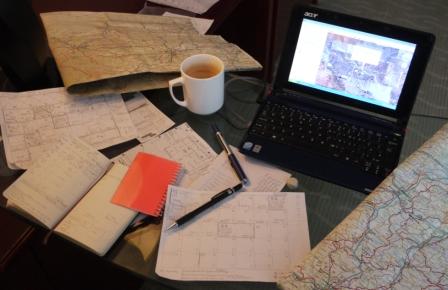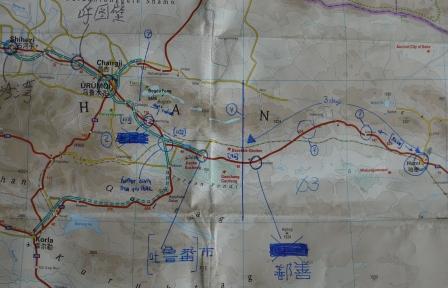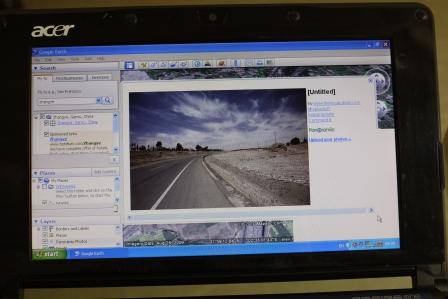A couple of questions from my neighbour Jon had got me thinking. Something he’d posed ahead of a forthcoming interview we’d be doing together for a local radio station. How much time was spent planning ahead? What sort of things did I do?
Some long-haul touring cyclists do favour wicker baskets on their handlebars. But I’d be surprised if they’d extend the Enid Blyton “Famous Five” analogy to suggest a world of lush meadows, lashings of ginger beer and thick cut sandwiches. It’s not that there aren’t idyllic, care-free moments. It’s just that there’s quite a bit of other stuff to do.
Take my recent stop in the walled city of Xi’an. Admittedly a bit longer off the road than is the norm. A forced wait for a fresh visa. But reasonably representative nevertheless. Catching up on the blogs. Elaborating on those little gems of ideas that emerge in the saddle. Photos to upload. Bicycle to clean, kit to wash. Keeping an eye on the funds. As much the mundane as the more motivating.
When it comes to the next country or two, there’s only one starting point. Visas. Without which everything else is academic. Just day dreaming. Then it’s maps, logistics, timelines. Slowly assembling a mental picture of the road ahead. Exactly how much you do, the depth, very much dependant on the individual. What you’re comfortable with. Some content to ride on the fly. Others, myself included, preferring a bit more certainty. But not unduly constraining. A balance.
But there’s one thing I’m fortunate I need not concern myself too much with. Airlines. Admittedly I need to drum up some dates, but, other than that, I just leave it to my parents to advise on the best deals. Forty one and never to old to listen to Mum and Dad.




